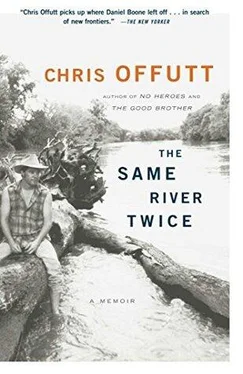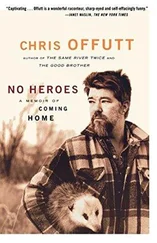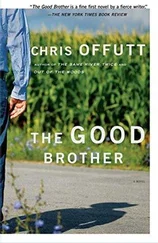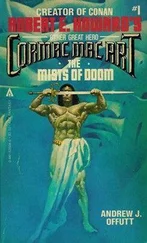There is a subtle difference between feeling lonely — that inner peril of the mind — and the simple lack of company that makes me lonesome. Rita takes the edge off both. Perhaps the baby will cut the loneliness further, make me need the woods less. I realize that I’m thinking backwards, that it is the kid who will rely on me. It may never be a friend.
Gunshots echo from across the river, a hunter sighting on a deer. Carrying a weapon into the woods transforms perceptions; one is no longer on equitable ground, sharing time and space. The spear of the necessary hunt has given way to the rifle of sport. I’ve eaten the forbidden possum, snake, coon, and horse, as well as rabbit, squirrel, and deer. All bounty of the woods is welcome at my door. These days, however, I prefer my liaison with nature to be one of peace.
Taking life is as biologically grounded as giving life. Every animal kills to live. Eating fruit, vegetables, and grain is no escape; plants are living things. They have gender and home, suffer when hurt, and attempt to heal themselves. Tree stumps sprout each year, offspring produced by roots still sucking water. I believe that like an amputee whose missing limb aches, the tree knows when a branch is gone.
Leaving the maple is more difficult than entering. I lie on my back, brace my boots against the inner walls, and push myself faceup into the woods. The woodpecker cocks its head and looks at me. When I stand, it flits away, scalloping the air with its telltale flight.
I carefully skirt the pile of animals, then decide against retreat. A father must face everything. I try to open my vision in the way that helped me see the watermark on the trees. I think of the woodpeckers that must have blinded themselves before the species learned to blink.
Live game are using the dead for food, and it occurs to me that this is not a mass grave, or an omen of miscarriage. It is simply the residue of older ways. A trapper has cleared out his freezer for better fare, perhaps a deer. Prairie winters are harsh and he is helping the animals to survive. The pelts gave cash to the trapper, the deer gave him food, and he has returned the favor of the woods. In our own way, Rita and I are engaged in a similar cycle, giving ourselves to the world. After the baby is born, stages of childhood will replace seasons for charting time.
I look back at the hollow maple and nod my head once, glad that no one is here to witness this. I walk out of the woods, my tracks bisecting animal trails in strange geometry. Behind me the woodpecker labors for larvae to survive the season. Ahead, Rita is waiting, very calmly, waiting. She has her own high-water mark to watch. Soon the snow will fly, the color of salt, the smell of life.
Allowing oneself to sleep in rain is the mark of a soldier, an animal, and the consummate hitchhiker. It was a skill I never fully acquired. Water weight trebled the mass of my pack. Rain gathered in my brows and ran into my eyes at the slightest movement. There is a private understanding, even appreciation, of misery when one is cold and wet at four in the morning. Dawn never seemed so precious. Birdsong meant that soon you could watch the rising steam drawn from your clothes by sun. In this fashion, I began a summer in Alabama.
The sun hung low on the horizon when the leader of a convoy came traveling my way. Emblazoned along the truck in red curlicued letters were the words “Hendley Circus, Greatest Show on Earth.” Truck after truck passed, each garishly advertising various sideshows. Horse droppings spilled from a trailer. A variety of campers and RVs followed, but none stopped and no one waved. The last vehicle trundled from sight and I felt as though I’d seen a mirage, a phantom wagon train that taunted hermits of the road.
From the west came the sound of another truck straining in low gear. The driver flung open the passenger door without stopping.
“Hurry,” he said. “I can’t stop or Peaches will get mad.”
I used the mirror to vault onto the running board, and scrambled into the seat.
“Thanks,” I said.
“No problem. I’ve been on the run plenty.”
“It’s not like that.”
“It never is,” he said. “You got five bucks to loan me?”
“I’m broke.”
He slid a hand into his shirt pocket and handed me a five-dollar bill. He spat tobacco juice out the window.
“Little treat for Peaches,” he said. “She loves ’backer.”
“Who’s Peaches?”
“My best friend of fifteen years. The circus is my mistress but Peaches is my wife.”
The way the truck swayed at low speed, I figured he was married to the sideshow Fat Lady, who wouldn’t fit up front. If he wanted to haul his wife in the back, it was his business.
Barney had been in the circus all his life, a case of “sawdust up my nose when I was a little pecker.” He offered me a job, saying that I owed him a Lincoln already. Room and board were included in the wage. Four hours later we passed through a tiny town and joined the rest of the caravan, circled like a pioneer wagon train in a broad grassy vale. Barney hopped from the cab and handed me a rake.
“Clear the rocks from behind the truck, then make a path to the big top.”
Barney climbed on the rear bumper and unhooked chains bigger than those used by professional loggers. He cranked down the gate, revealing the great gray flanks of an elephant. Barney spoke to Peaches in a soothing tone, apologizing for the long trip, offering her water and hay if she’d come out of the truck. A foot extended backwards. I scurried away so fast I fell. Raucous laughter erupted behind me.
“What a fall, what a fall! Sign him up!”
“Move over, Rover, he’s mashing clover!”
A pair of dwarfs leered from giant heads on neckless bodies. One performed a handspring, then clambered onto the shoulders of his buddy. They advanced on me, my size now, flicking their tongues like snakes. I held the rake across my body.
“Rover’s got a rake,” said one.
“Let’s throw him in the lake.”
“There ain’t no lake.”
“How about a well?”
“That sounds good.”
The top dwarf kicked the lower one in the head.
“Swell,” the top one said. “You should have said swell for the rhyme.”
“Don’t kick me.”
The lower dwarf bit his partner’s ankle and they tumbled across the ground. Peaches aimed her trunk high, bellowing relief at standing on earth. Barney stepped around her with a long pole that ended in a hook.
“Hey, you fricking runts,” he yelled. “Peaches favors tidbits like you.”
The dwarfs scrambled away, hopping onto the metal steps of a camper.
“I’ll make a suitcase out of her,” one said.
“Planters from her feet.”
“A dildo of her trunk.”
Peaches regarded me from an eye the size of my fist. Thick stalks of hair poked from her body like weed clumps. Her back leg held a heavy manacle that chained her to the truck.
“Stay away from them shrimps,” Barney said. “Watch out for the clowns, too. And don’t even look at the Parrot Lady. Even from behind. She can tell.”
I nodded, receiving information without the ability to process it.
“Go to the trucks and ask for Flathead. Tell him you’re my First of May.”
I moved across the field, listening to yelling and cursing everywhere. No one talked in normal tones. People were setting up sideshow games, running electric wires, unloading animals. A vast crew of men worked four trucks loaded with folded tents. Flathead’s curly hair was very short, as if to display the fact that his head was indeed flat on top. He told me to dig a donicker.
“What?”
“The donicker hole. What’s the matter, you no piss? Everybody piss. Dig two hole, you.”
Читать дальше












